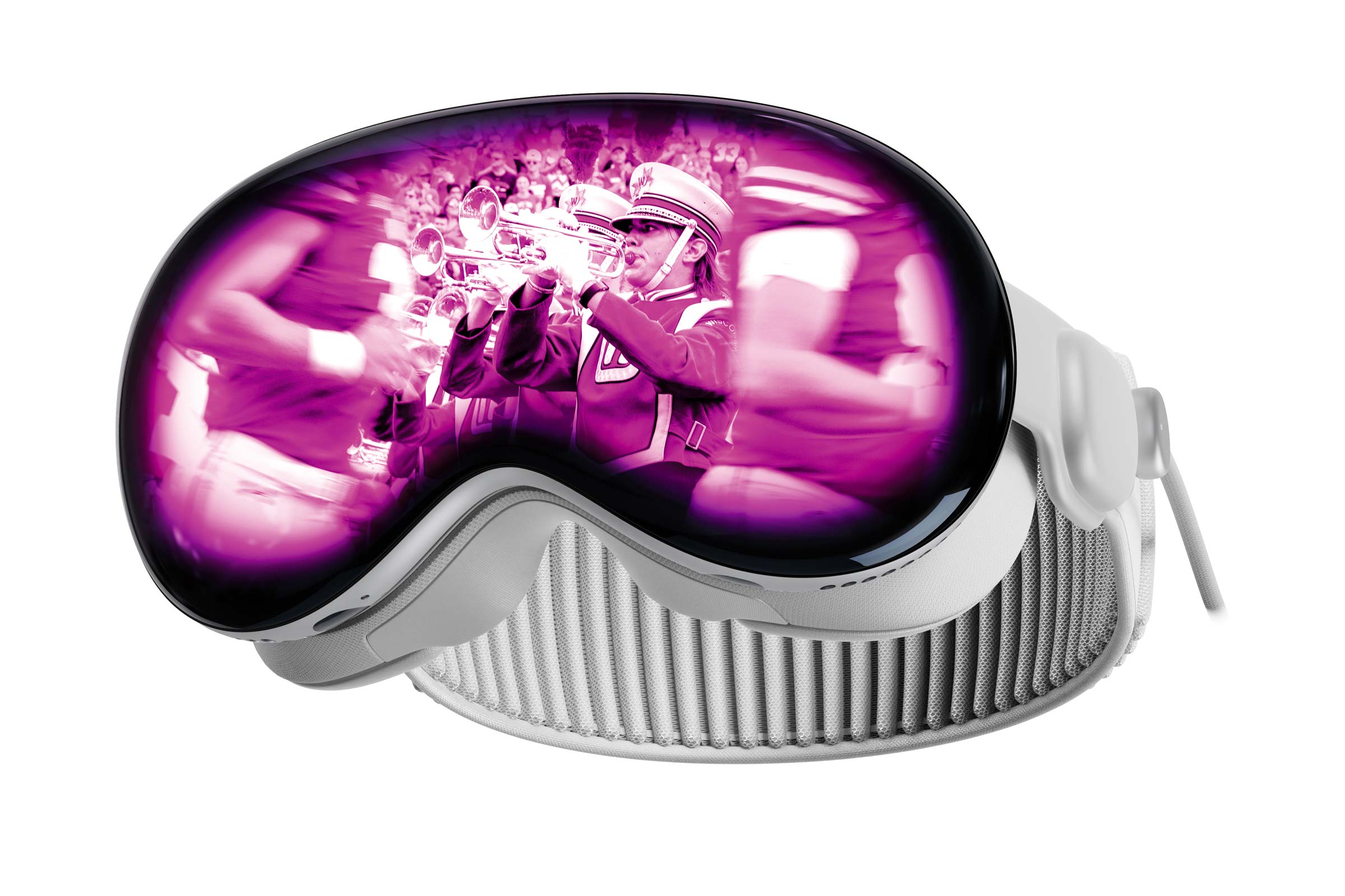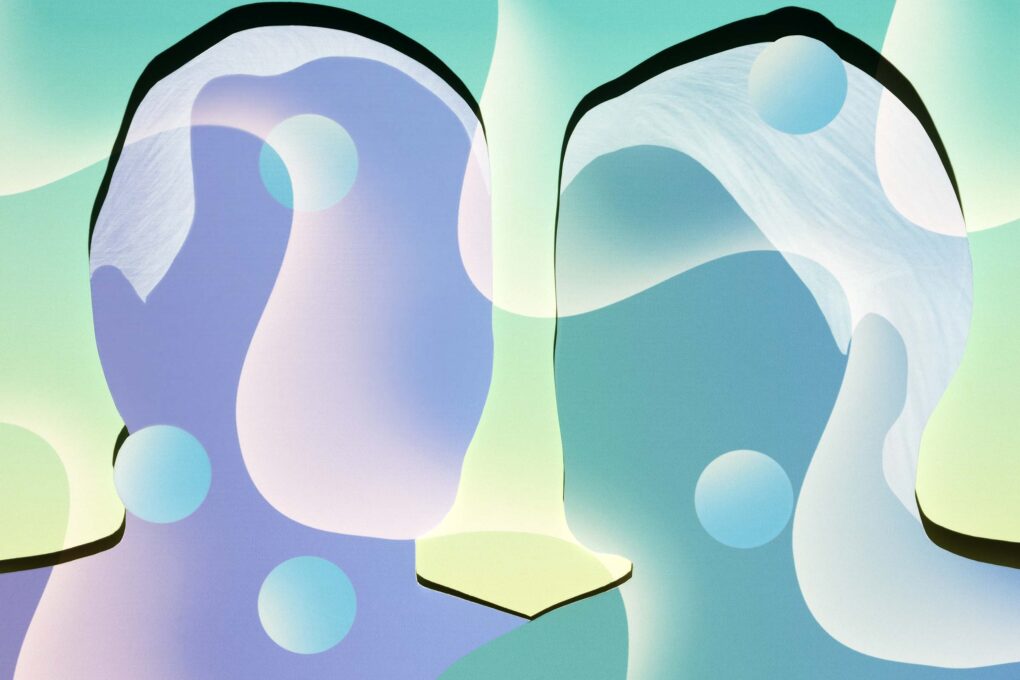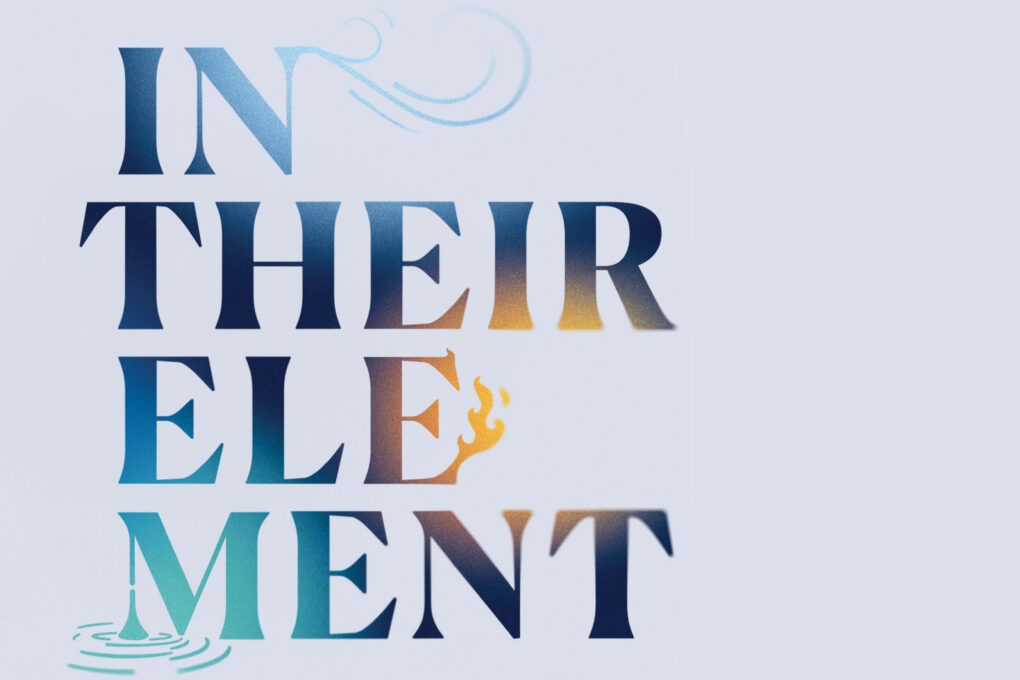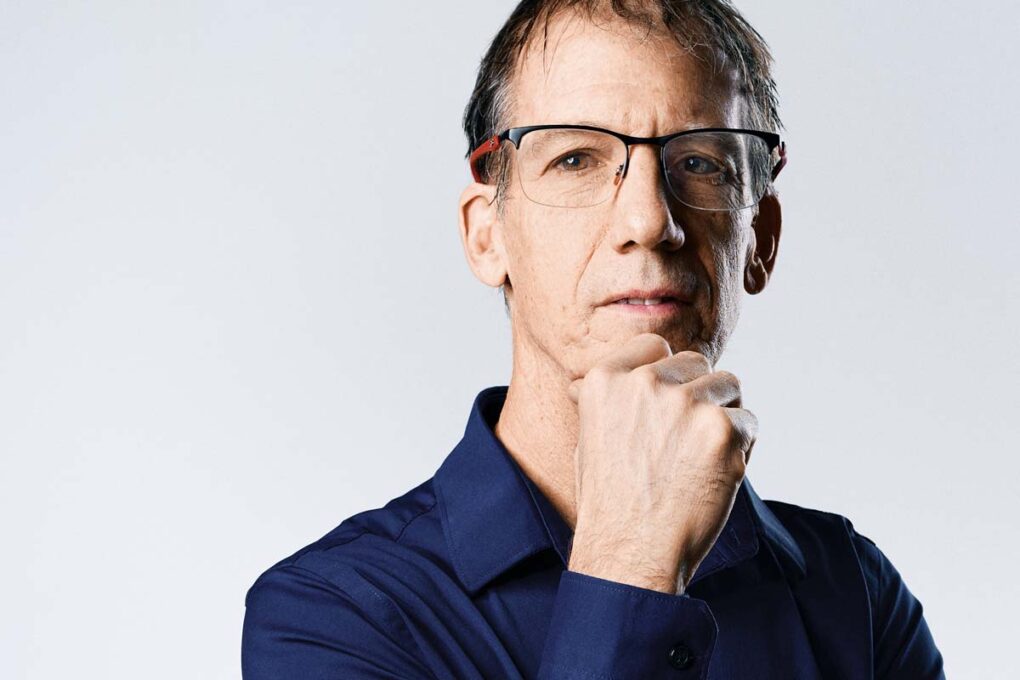
I’m on the turf of Camp Randall surrounded by percussionists sporting the University of Wisconsin Marching Band uniform. Corey Pompey, the associate director of bands and an associate teaching professor in the Mead Witter School of Music, is conducting as we play the familiar chords of “On, Wisconsin.” I look down and it appears that I’m the one playing the snare drum, and as I turn my head every which way I see the whole organization. Trumpets, clarinets and trombones are all within my field of vision as well as the folks on the sidelines and in the stands watching us perform. It all feels so immersive — so real.
Except I’m not actually there. I’m sitting in the Humanities Building with Mead Witter School of Music Communications Manager Eric Murtaugh and Director Dan Cavanagh, who is also the Pamela O. Hamel Music Board of Advisors Chair and a professor of jazz studies and composition.
I take off the virtual reality headset and am instantly grounded back in reality. “Music in 2025 is no longer confined to the concert hall,” Cavanagh says with a smile.
When Cavanagh first heard about Apple Vision Pro, which was released early last year, he immediately saw its potential for students, faculty and staff. He also saw an opportunity to increase accessibility to performances and a recruiting tool to attract top talent to the University. So, he tasked Murtaugh and Videographer Harry Browne with bringing this state-of-the-art technology to the music department.
Music in 2025 is no longer confined to the concert hall.
While the marching band is a fun example of what the Apple Vision Pro can do, a more subtle performance from a symphony orchestra shines brightest. The musicians are on stage in the glossy, copper-lined walls of the Hamel Music Center performing with rich harmonies, dynamic crescendos and sweeping soundscapes.
“Music is a uniquely human experience, and to experience music in its fullest potential is to be in the concert hall with an audience experiencing those same emotions,” Cavanagh says. “And the Hamel Music Center is really a crown jewel of Madison and the University — it’s one of the best concert halls in the United States.”
That’s what people get to see when they stop by the Mead Witter School of Music booth at music conferences across the country. They not only see — but also get to experience — that UW–Madison has skilled musicians and a state-of-the-art concert hall, and is on top of their game when it comes to adapting to modern technology.
“The energy shifts when someone puts on the Apple Vision Pro,” Murtaugh says. “The wow factor is there, and you can’t get that with a brochure.”




